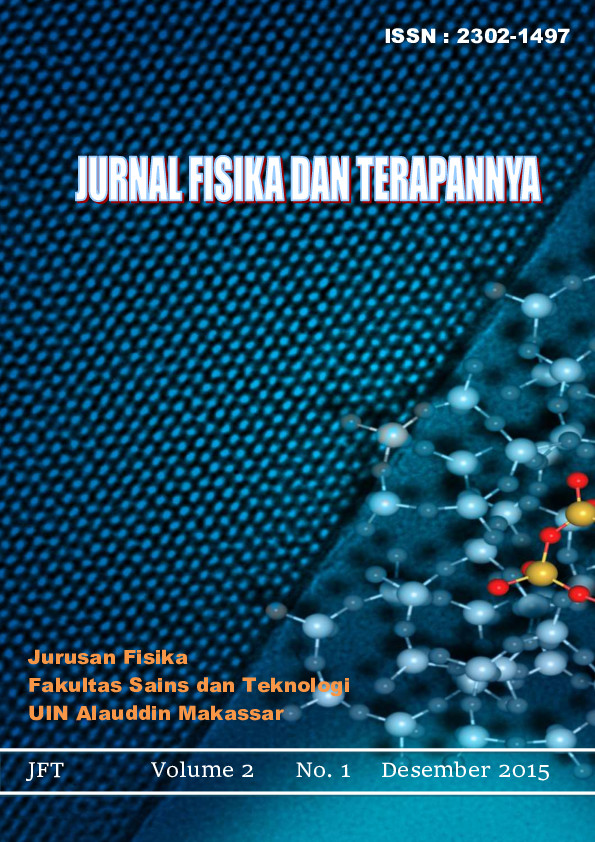ANALISIS PAPAN KOMPOSIT DARI LIMBAH PLASTIK POLYPROPHYLENE (PP) DAN SEKAM PADI
Abstract
This study aims to determine the quality of the composite board from a variety of compositions. The sample composition consisted of 50% polypropylene plastic: 50% rice husk, 60% polypropylene plastic: 40% rice husk, 70% polypropylene plastic: 30% rice husk and 80% polypropylene plastic: 20% rice husk. The method used in this research is physical test and mechanical test. As for the results of the physical properties test, the density test of all compositions meets the standards starting from the low, medium and high density composite board category. To test the moisture content of all compositions meet the standards. Meanwhile, in the water absorption test, there was no composition that met the standards. For the thickness change test, all compositions met the standards except for the composition of 50% polypropylene plastic: 50% rice husk. The test results for the mechanical properties of all compositions do not yet meet Indonesian national standards.Downloads
References
Al-Malaika, 1997,Tinjauan Pustaka papan komposit, Sumatra Utara
Agus., 2010, Artikel Cara kerja mesin UTM, Makassar, Unhas: Fakultas Kehutanan
Bost.Pemanfaatan Plastik. (1980) dalam Syarief et al. (1999)
Bost., 1989, Material Science of Polymer for Engineers. Ohio: Hanser/Gardner Publications, Inc
Hakim., 2007, Landasan teori tentang komposit, Sumatera Utara, Pdf
Haryadi., 2006, Artikel Pemanfaatan sekam padi, Sumatera Utara
Hasmin., 2006, Artike Pemanfaatan plastik, Sumatera Utara
Haygreen dan Bowyer, 1996, Papan Komposit, Bogor: Fakultas Kehutanan
Ida Ayu Putu Wida Septiari, I Wayan Karyasa, Ngadiran Kartowarsono. 2014. Pembuatan papan partikel dari limbah plastic Polyprophylene (pp) dan tangkai bamboo (Diakses 2 Oktober 2014)
Ismunadji., 1988, Pemanfaatan Limbah Pertanian. Bandung: IPB
Jayne A Benjamin.,1998, Mechanics Of Wood and Wood Composites. New York: Van Nostrand Reinhold Company
Ludwig Steiger., 2010, Konstruksi Kayu, Jakarta: Penerbit Erlangga
Martana, H., 2012, Pengaruh campuran pasir, bentonit, dan sekam padi terhadap kualitas fungsional dan visual rumput Bermuda (Cynodon dactylon cv. Tifdwardf). Skripsi Fakultas Pertanian. IPB. Tidak Dipublikasikan
Massijaya, M.Y, Y.S.Hadi, B. Tambunan, E.S. Bakar, W.A.Subari., 2000, Penggunaan Limbah Plastik Sebagai Komponen Bahan Baku Papan Partikel. Jurnal Teknologi Hasil Hutan.XIII (2):18-24
Osswald TA, Menges G., 1995, Material Science of Polymer for Engineers. Ohio: Hanser/Gardner Publications, Inc
Putra, 2011, Tinjauan pustaka papan komposit, Bogor: Fakultas Kehutanan, Pdf
Ratna. Pembuatan Papan Partikel Dari Limbah Plastik dan Sekam. Dalam Maloney, TM. 1993 (Diakses 2 Oktober 2014).
Ratna. Pembuatan Papan Partikel Dari Limbah Plastik dan Sekam. Dalam Rowell, R. M, Young Raymond A, Rowell, Judith K. 1997 (Diakses 2 Oktober 2014)
Schwartz, Artikel papan komposit, Sumatra Utara: 1984, Pdf
Sperling, LH., 2006, Jenis dan karakteristik plastik. Jakarta: Erlangga
Standar Nasional Indonesia., 2006, Papan Partikel (SNI 03-2105-2003). Badan Standarisasi Nasional
Walker, 1993, papan komposit, Sumatra Utara, Pdf
Widarmana, 2009, dalam Asmadi, Tinjauan pustaka papan komposit, Bogor: Fakultas Kehutanan, pdf


